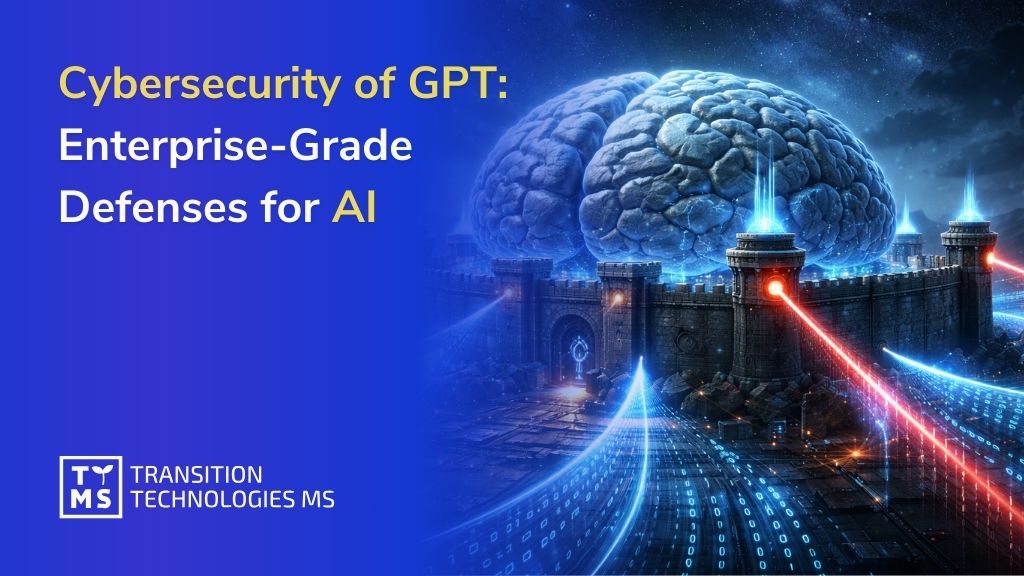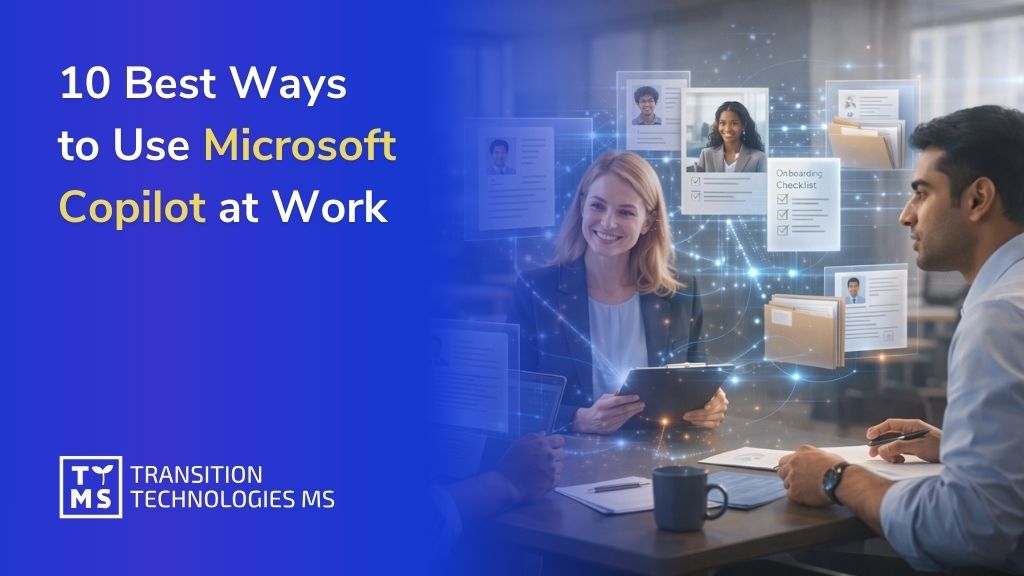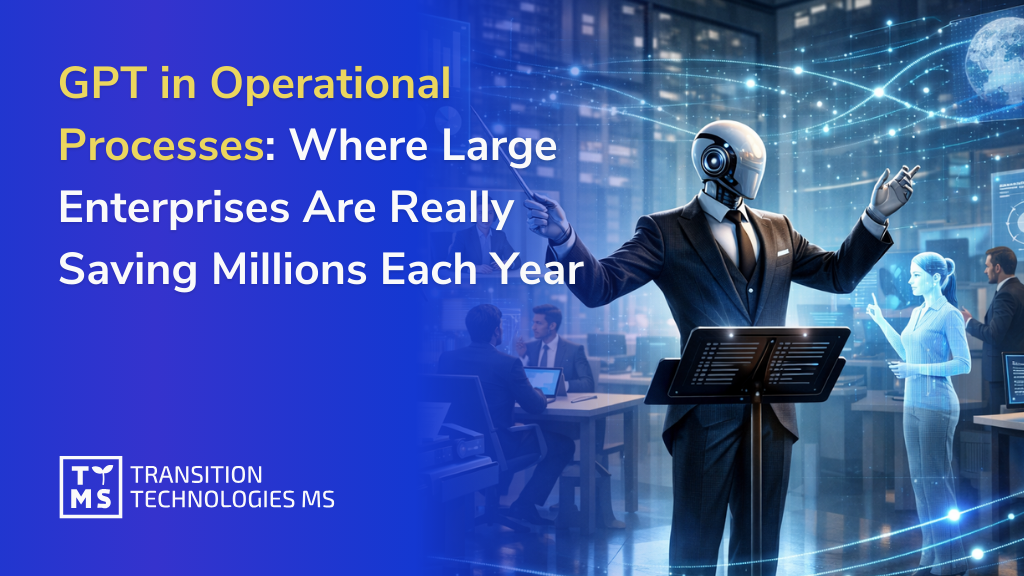In the fast-paced world of modern business, efficiency and productivity are key drivers of success. Companies are constantly searching for ways to streamline operations, reduce costs, and enhance output. One of the most powerful tools at their disposal today is Artificial Intelligence (AI). By automating repetitive tasks, AI not only frees up human resources for more strategic activities but also improves the accuracy and speed of processes that once required significant manual effort. This article explores how AI automate repetitive tasks to boost productivity by automating routine business tasks.
1. The Growing Role of AI Tools to Automate Tasks in Business
Artificial Intelligence has rapidly evolved from a futuristic concept to a practical tool that is transforming industries. Today, AI is being integrated into various business functions, from customer service and marketing to supply chain management and finance. The primary advantage of AI is its ability to process large volumes of data quickly and accurately, making it ideal for automating routine tasks that are time-consuming and prone to human error.

2. Key Areas Where AI Can Automate Routine Tasks
2.1 Customer Service and Support: Revolutionizing Business Interactions with AI
Customer service is the frontline of any business, directly influencing customer satisfaction, brand loyalty, and overall business success. With the rapid advancements in AI, customer service has undergone a significant transformation, becoming more efficient, personalized, and responsive. AI-powered tools, such as chatbots and virtual assistants, are now central to modern customer service strategies, fundamentally changing how businesses interact with their customers.
The Rise of AI-Powered Chatbots and Virtual Assistants
AI-driven chatbots and virtual assistants have become indispensable tools in customer service, capable of handling a vast array of customer inquiries without the need for human intervention. These AI systems are designed to simulate human conversation, providing customers with instant, accurate, and relevant responses to their questions.
- Efficiency and Speed: One of the most significant advantages of AI chatbots is their ability to provide instant responses. Unlike human agents, who can only handle one customer at a time, AI chatbots can manage multiple queries simultaneously, ensuring that customers receive prompt assistance regardless of the time of day or the volume of inquiries. This capability is particularly beneficial for businesses with a global customer base, as it allows for 24/7 service without the need for a round-the-clock human support team.
- Consistency in Service: AI chatbots offer a consistent customer experience by providing uniform responses to frequently asked questions (FAQs). This consistency ensures that all customers receive the same level of service, reducing the risk of human error and enhancing the reliability of customer support.
- Scalability: As businesses grow, the volume of customer inquiries often increases, requiring additional resources to manage. AI-powered chatbots are highly scalable, capable of handling increasing volumes of interactions without the need for additional staffing. This scalability allows businesses to maintain high levels of customer service even during peak times, such as during product launches, sales events, or holiday seasons.
Enhancing Customer Interaction through Personalization
While AI chatbots excel at handling routine inquiries, their true potential lies in their ability to personalize customer interactions. By leveraging data analytics and machine learning, these systems can analyze customer behavior, purchase history, and preferences to tailor responses and recommendations.
- Contextual Understanding: Advanced AI systems are designed to understand the context of a customer’s inquiry. For example, if a customer contacts a company about a recent purchase, the chatbot can access the customer’s order history to provide relevant information, such as shipping status or return policies. This level of contextual understanding creates a more personalized and seamless experience for the customer.
- Predictive Assistance: AI-powered chatbots can go beyond answering immediate questions by offering proactive support. For instance, if a customer frequently inquires about a specific product feature, the AI system can anticipate future questions and provide additional resources, such as user guides or tutorial videos, to assist the customer further. This predictive capability helps to address customer needs before they even arise, enhancing the overall customer experience.
- Customer Segmentation: By analyzing customer interactions, AI systems can identify patterns and segment customers based on their behavior and preferences. This segmentation allows businesses to offer targeted promotions, personalized product recommendations, and tailored support, increasing customer satisfaction and driving sales.
Reducing Human Workload and Costs
One of the primary benefits of integrating AI into customer service is the significant reduction in the workload on human agents. By automating routine and repetitive tasks, businesses can reallocate their human resources to focus on more complex and value-added activities.
- Handling Repetitive Tasks: Many customer inquiries involve simple, repetitive tasks, such as checking account balances, tracking orders, or resetting passwords. AI-powered chatbots can efficiently handle these tasks, freeing up human agents to concentrate on more nuanced and intricate customer issues that require human empathy, creativity, and decision-making.
- Cost Efficiency: Implementing AI in customer service can lead to substantial cost savings for businesses. By reducing the need for a large customer service team, companies can lower their operational costs while maintaining high levels of service. Additionally, AI systems can reduce the costs associated with human errors, such as incorrect information or missed inquiries, which can lead to customer dissatisfaction and potential revenue loss.
- Improved Employee Satisfaction: By offloading mundane tasks to AI systems, human customer service agents can focus on more challenging and rewarding aspects of their jobs. This shift can lead to increased job satisfaction, lower turnover rates, and a more motivated workforce.
Continuous Learning and Improvement
AI systems in customer service are not static; they continuously learn and improve over time. Through machine learning algorithms, these systems analyze past interactions to enhance their understanding and accuracy, leading to better customer service outcomes.
- Learning from Interactions: Every customer interaction is a learning opportunity for AI chatbots. By analyzing customer feedback, sentiment, and behavior, AI systems can refine their responses and improve their ability to resolve complex issues. Over time, this continuous learning process results in more accurate and efficient customer support.
- Adapting to New Scenarios: As businesses evolve and customer needs change, AI-powered customer service systems can adapt to new scenarios and queries. This adaptability ensures that businesses can continue to meet customer expectations even as products, services, and markets change.
- Integration with Human Agents: In cases where AI chatbots cannot resolve an issue, they can seamlessly transfer the customer to a human agent, providing the agent with all relevant context and information. This integration between AI and human agents ensures that customers receive the best possible support, regardless of the complexity of their inquiry.
Future Trends and Innovations
The use of AI in customer service is rapidly evolving, with several emerging trends poised to further transform the industry.
- Voice-Activated Assistants: With the growing popularity of voice-activated devices like smart speakers, businesses are integrating AI-powered voice assistants into their customer service strategies. These assistants can handle voice inquiries, provide hands-free support, and offer a more natural and conversational customer experience.
- Emotionally Intelligent AI: Advances in natural language processing (NLP) and sentiment analysis are enabling AI systems to detect and respond to the emotional state of customers. By understanding customer emotions, AI-powered chatbots can adjust their tone and approach, providing more empathetic and effective support.
- Augmented Reality (AR) and Virtual Reality (VR) Support: In the future, AI could be integrated with AR and VR technologies to offer immersive customer support experiences. For example, customers could receive virtual demonstrations of products or step-by-step guidance on complex tasks through AR or VR interfaces.

2.2 Data Entry and Processing: Transforming Efficiency with AI
Data entry and processing are critical functions in many organizations but often involve repetitive and time-consuming tasks. The manual handling of data can be labor-intensive, prone to human error, and slow. AI technologies are now revolutionizing these processes, significantly improving efficiency, accuracy, and productivity.
Automating Data Entry
One of the most significant applications of AI in data entry is automation. AI systems can handle the extraction, organization, and input of data from various sources, reducing the need for human intervention.
- Optical Character Recognition (OCR): AI-driven OCR technology is a cornerstone of modern data entry automation. OCR systems can scan and digitize printed documents, such as invoices, forms, and receipts. By converting images of text into machine-readable data, OCR eliminates the need for manual typing and reduces the risk of transcription errors. This technology is especially useful in industries where large volumes of paper documents are processed regularly.
- Natural Language Processing (NLP): NLP algorithms can analyze and understand text from emails, reports, and other unstructured data sources. By extracting relevant information and categorizing it, NLP enables automated data entry from written content. For example, NLP can parse customer feedback from emails or chat logs to input data into customer relationship management (CRM) systems.
- Data Extraction from Web Forms and Portals: AI can automate the extraction of information from web forms and online portals. By using machine learning algorithms to recognize and interpret form fields, AI systems can capture data from online submissions and input it into databases or management systems.
Enhancing Accuracy and Efficiency
AI technologies enhance the accuracy and efficiency of data entry by minimizing human error and speeding up the processing time.
- Error Reduction: Manual data entry is prone to errors such as typos, misinterpretation of data, or incorrect formatting. AI systems can standardize data entry processes, reducing the likelihood of mistakes. For instance, AI can validate data against predefined rules, flagging inconsistencies or anomalies for review before final submission.
- Speed and Scalability: AI-powered data entry solutions can process vast amounts of information at high speeds, far exceeding human capabilities. This capability is crucial for organizations that deal with large datasets, such as financial institutions, healthcare providers, and e-commerce businesses. AI systems can scale to handle increased data volumes without a proportional increase in processing time or resources.
- Real-Time Processing: AI can enable real-time data entry and processing, allowing organizations to access and utilize data as soon as it is collected. For example, AI systems can automatically update inventory levels in real-time based on incoming orders, improving supply chain management and operational efficiency.
Streamlining Data Processings
Beyond data entry, AI plays a crucial role in data processing, which involves organizing, analyzing, and interpreting data to extract valuable insights.
- Data Cleansing: AI can automate the process of data cleansing, which involves identifying and correcting inaccuracies, inconsistencies, or duplicate entries. Machine learning algorithms can detect patterns and anomalies in data, facilitating the cleanup process and ensuring that data is accurate and reliable.
- Data Integration: AI systems can integrate data from multiple sources, such as databases, spreadsheets, and external applications. By consolidating disparate data into a unified format, AI enhances data accessibility and usability. For example, AI can merge customer data from various touchpoints, such as website interactions and social media, into a single CRM system.
- Predictive Analytics: AI-driven predictive analytics can analyze historical data to identify trends, patterns, and future outcomes. By applying machine learning algorithms to processed data, organizations can make data-driven predictions and informed decisions. For instance, AI can forecast sales trends, customer behavior, or market demand based on historical data.
Improving Data Security and Compliance
AI can also enhance data security and compliance by monitoring and managing data access, encryption, and regulatory adherence.
- Access Control: AI systems can manage and enforce data access policies, ensuring that only authorized personnel have access to sensitive information. By analyzing user behavior and access patterns, AI can detect and prevent unauthorized access or potential security breaches.
- Data Encryption: AI can automate the encryption of sensitive data, protecting it from unauthorized access and ensuring compliance with data protection regulations. For example, AI algorithms can encrypt customer data during transmission and storage, safeguarding it from cyber threats.
- Regulatory Compliance: AI systems can help organizations comply with data protection regulations, such as GDPR or CCPA, by automating tasks related to data retention, consent management, and privacy audits. AI can monitor data processing activities and generate compliance reports, reducing the risk of regulatory violations.
Future Trends and Innovations
The future of AI in data entry and processing promises even more advancements and innovations.
- Intelligent Document Processing (IDP): IDP systems combine AI technologies such as OCR, NLP, and machine learning to process and analyze complex documents. These systems can extract data from invoices, contracts, and other documents with high accuracy and minimal human intervention.
- AI-Powered Data Visualization: AI can enhance data visualization by automatically generating charts, graphs, and dashboards based on processed data. By providing intuitive visual representations, AI helps users quickly understand and interpret complex data.
- Augmented Data Management: Emerging AI technologies may enable augmented data management, where AI assists in data creation, validation, and enrichment. For example, AI could help generate synthetic data to supplement real datasets, enhancing the quality and diversity of data used for training machine learning models.

2.3 Financial Management: Revolutionizing Efficiency and Accuracy with AI
Financial management encompasses a wide range of tasks, including invoicing, expense tracking, payroll processing, and budgeting. These tasks often involve repetitive processes and require meticulous attention to detail. AI technologies are transforming financial management by automating routine tasks, enhancing accuracy, and providing valuable insights. Here’s how AI is reshaping the financial landscape:
Automating Routine Financial Tasks
AI can significantly streamline and automate many repetitive financial tasks, reducing the manual workload and minimizing errors.
- Invoicing: AI algorithms can automate the creation and sending of invoices. By integrating with accounting software, AI systems can generate invoices based on predefined templates, populate them with transaction details, and send them to clients. This automation reduces the risk of human error and accelerates the invoicing process, ensuring timely payments.
- Expense Tracking: AI-powered tools can automatically track and categorize expenses. By analyzing receipts, invoices, and transaction records, AI can classify expenses into appropriate categories, such as travel, office supplies, or client services. This categorization simplifies expense reporting and reconciliation, providing a clearer view of spending patterns.
- Payroll Processing: AI can automate payroll processing by calculating employee wages, deducting taxes, and managing benefits. AI systems can integrate with time-tracking tools to accurately calculate hours worked, handle deductions, and ensure compliance with labor laws. Automation in payroll reduces administrative overhead and minimizes errors in wage calculations.
Enhancing Accuracy and Compliance
AI technologies contribute to greater accuracy and compliance in financial management by minimizing errors and ensuring adherence to regulations.
- Error Detection: AI systems can detect anomalies and discrepancies in financial records. For instance, machine learning algorithms can identify unusual patterns in expense claims or flag potential errors in data entry. By catching discrepancies early, AI helps maintain the integrity of financial records.
- Regulatory Compliance: AI can assist in maintaining compliance with financial regulations and standards. For example, AI systems can monitor transactions to ensure they adhere to tax regulations, financial reporting standards, and anti-money laundering laws. Automated compliance checks reduce the risk of regulatory violations and associated penalties.
- Audit Trail: AI can maintain a comprehensive audit trail of financial transactions. By recording and analyzing every step of financial processes, AI systems create a transparent record that can be reviewed during audits. This transparency facilitates easier identification of any irregularities and supports compliance with auditing requirements.
Predictive Analytics and Financial Forecasting
AI enhances financial management by providing advanced analytical tools and forecasting capabilities, enabling better decision-making and strategic planning.
- Cash Flow Forecasting: AI algorithms can analyze historical financial data to predict future cash flow trends. By examining patterns in revenue and expenses, AI can generate accurate cash flow forecasts, helping businesses anticipate financial needs and manage liquidity more effectively.
- Budgeting: AI can assist in creating and managing budgets by analyzing past spending patterns and projecting future expenses. AI-driven tools can identify trends, suggest budget adjustments, and provide insights into areas where cost savings might be achieved. This allows for more informed and strategic budgeting decisions.
- Financial Risk Assessment: AI can evaluate financial risks by analyzing data related to market trends, economic indicators, and internal financial metrics. By assessing potential risks and their impact on financial performance, AI helps organizations implement risk mitigation strategies and make proactive financial decisions.
Streamlining Financial Reporting
AI can automate the generation of financial reports, providing timely and accurate insights into financial performance.
- Automated Report Generation: AI systems can generate financial reports, such as profit and loss statements, balance sheets, and cash flow statements, automatically. By extracting data from various sources and applying predefined report templates, AI simplifies the reporting process and ensures consistency in report formats.
- Real-Time Analytics: AI enables real-time financial analytics, allowing organizations to monitor financial performance continuously. Real-time dashboards and analytics tools provide up-to-date information on key financial metrics, helping finance teams make quick and informed decisions.
- Data Visualization: AI can enhance financial reporting through advanced data visualization techniques. By creating interactive charts, graphs, and dashboards, AI helps stakeholders easily interpret complex financial data and identify key trends and insights.
Future Innovations in Financial Management
The future of AI in financial management promises further advancements and innovations.
- AI-Driven Financial Planning: Emerging AI technologies may offer advanced financial planning capabilities, including scenario analysis and strategic forecasting. AI could simulate various financial scenarios, helping organizations evaluate the potential impact of different strategies and make data-driven decisions.
- Blockchain Integration: AI may integrate with blockchain technology to enhance financial transactions’ security and transparency. AI can analyze blockchain data to detect fraudulent activities, verify transaction authenticity, and streamline financial operations.
- Personalized Financial Advice: AI-driven financial advisors, or robo-advisors, may provide personalized financial advice and investment recommendations based on individual preferences and risk profiles. By leveraging machine learning algorithms and financial data, AI can offer tailored financial strategies and portfolio management.
2.4 Human Resources: Transforming HR Operations with AI
Human Resources (HR) encompasses a wide range of functions, including recruitment, employee onboarding, performance management, and employee engagement. AI is revolutionizing HR by automating routine tasks, enhancing decision-making processes, and improving overall efficiency. Here’s how AI is transforming various aspects of HR operations:
Automating Recruitment and Resume Screening
AI significantly enhances the recruitment process by automating the screening and evaluation of job applicants.
- Resume Screening: AI-powered tools can analyze large volumes of resumes quickly and efficiently. Machine learning algorithms sift through resumes to identify candidates who meet predefined criteria, such as required skills, experience, and qualifications. This automation reduces the time spent manually reviewing resumes and helps HR teams focus on the most promising candidates.
- Candidate Matching: AI can match candidates to job openings based on their skills, experience, and other attributes. By analyzing job descriptions and candidate profiles, AI systems can recommend candidates who are the best fit for specific roles. This improves the quality of hires and accelerates the recruitment process.
- Predictive Analytics: AI-driven predictive analytics can assess a candidate’s potential fit within an organization. By analyzing historical data and patterns, AI can predict how well a candidate is likely to perform and integrate into the company culture. This helps HR teams make more informed hiring decisions.

Streamlining Interview Scheduling and Coordination
AI can automate and streamline various aspects of the interview process, improving efficiency and candidate experience.
- Interview Scheduling: AI-powered scheduling tools can automatically coordinate interview times between candidates and interviewers. These tools can integrate with calendars, handle time zone differences, and manage rescheduling requests. This reduces the administrative burden on HR staff and ensures a smooth scheduling process.
- Interview Preparation: AI can assist in preparing interview questions based on the job role and candidate’s background. By analyzing the job description and candidate’s resume, AI systems can generate relevant questions that assess key skills and competencies. This ensures that interviews are focused and aligned with job requirements.
- Interview Feedback Analysis: AI can analyze feedback from interviewers to identify patterns and insights. By aggregating and evaluating feedback, AI systems can provide recommendations on candidate suitability and help HR teams make more objective hiring decisions.
Enhancing Employee Onboarding and Training
AI improves the onboarding process and training programs, ensuring a smoother transition for new hires and ongoing development for existing employees.
- Automated Onboarding: AI can automate various aspects of the onboarding process, such as sending welcome emails, setting up user accounts, and providing new hires with essential information. AI-driven onboarding platforms can deliver personalized onboarding experiences, guiding new employees through company policies, procedures, and training materials.
- Training and Development: AI-powered learning management systems (LMS) can tailor training programs to individual employees’ needs. By analyzing employees’ skills, performance data, and career goals, AI can recommend personalized training courses and development opportunities. This helps employees acquire relevant skills and advance their careers within the organization.
- Knowledge Management: AI can support knowledge management by organizing and providing access to training materials, company policies, and best practices. AI-driven systems can answer employees’ questions and direct them to relevant resources, facilitating continuous learning and knowledge sharing.
Improving Employee Engagement and Performance Management
AI enhances employee engagement and performance management by providing actionable insights and personalized feedback.
- Employee Engagement: AI can analyze employee feedback, surveys, and communication patterns to assess engagement levels. By identifying trends and potential issues, AI systems can help HR teams develop strategies to improve employee satisfaction and retention.
- Performance Analytics: AI-driven performance management tools can analyze employee performance data to identify strengths and areas for improvement. AI can provide real-time feedback and recommend development plans based on performance metrics, goals, and peer reviews.
- Personalized Recognition: AI can help in recognizing and rewarding employees by analyzing performance data and achievements. By identifying top performers and tracking their contributions, AI systems can assist in designing personalized recognition programs that motivate and retain talent.
Enhancing HR Decision-Making with Data-Driven Insights
AI provides valuable data-driven insights that support strategic HR decision-making.
- Workforce Planning: AI can analyze workforce data to forecast staffing needs, identify skill gaps, and plan for future talent requirements. By examining trends in employee turnover, hiring patterns, and market conditions, AI helps HR teams make informed decisions about workforce planning.
- Diversity and Inclusion: AI can support diversity and inclusion initiatives by analyzing recruitment and employee data to identify patterns and biases. AI-driven tools can help HR teams develop strategies to promote a diverse and inclusive workplace by providing insights into representation and equity.
- Compensation and Benefits Analysis: AI can analyze compensation and benefits data to ensure competitive and equitable compensation practices. By examining market trends, employee performance, and industry benchmarks, AI systems can assist in designing compensation packages that attract and retain top talent.
Future Innovations in HR with AI
The future of AI in HR holds exciting possibilities for further innovation and transformation.
- AI-Driven Career Pathing: Emerging AI technologies may offer advanced career pathing tools that help employees navigate their career development within the organization. AI could analyze skills, performance, and career goals to recommend potential career paths and growth opportunities.
- Emotional AI: AI may incorporate emotional intelligence capabilities to better understand and respond to employees’ emotional states. By analyzing communication patterns and sentiment, AI could provide personalized support and enhance employee well-being.
- Blockchain Integration: AI may integrate with blockchain technology to enhance HR processes such as verification of credentials and secure record-keeping. Blockchain can provide a transparent and tamper-proof record of employee data, enhancing trust and security.
2.5 Marketing Automation: Revolutionizing Strategies with AI
Marketing is a dynamic field that requires continuous adaptation to changing consumer behaviors, preferences, and market trends. AI has become an indispensable tool in modern marketing, automating repetitive tasks, enhancing personalization, and improving overall efficiency. Here’s a deeper look into how AI is transforming various aspects of marketing automation:
Personalizing Marketing Campaigns
AI enables a higher degree of personalization in marketing campaigns, driving more relevant and engaging customer experiences.
- Customer Segmentation: AI-driven tools analyze vast amounts of customer data to segment audiences based on various factors such as demographics, behavior, and purchase history. This segmentation allows marketers to create highly targeted campaigns tailored to the specific needs and interests of different customer groups.
- Personalized Content: AI algorithms generate personalized marketing messages and content by analyzing individual customer preferences and past interactions. This includes personalized emails, product recommendations, and targeted ads, ensuring that each customer receives content that resonates with them.
- Dynamic Content Creation: AI can create dynamic content that adapts in real-time based on user interactions. For example, AI tools can adjust website content, offers, and recommendations according to the user’s browsing behavior, enhancing the relevance and impact of marketing messages.
Optimizing Email Marketing
AI enhances the effectiveness of email marketing by automating various aspects of campaign management and performance optimization.
- Email Personalization: AI algorithms analyze customer data to personalize email content, subject lines, and send times. This personalization increases open rates, engagement, and conversion rates by delivering relevant content to the right audience.
- Send Time Optimization: AI tools determine the optimal time to send emails to individual recipients based on their past behavior and engagement patterns. By sending emails at times when recipients are most likely to read and interact with them, AI improves the overall effectiveness of email campaigns.
- Automated A/B Testing: AI can automate A/B testing of email campaigns by testing different subject lines, content variations, and calls to action. The system analyzes the performance of each variation and selects the most effective option, ensuring continuous improvement of email marketing strategies.
Managing Social Media
AI revolutionizes social media management by automating content creation, scheduling, and engagement activities.
- Content Scheduling: AI-powered tools can schedule and publish social media posts across multiple platforms at optimal times. These tools analyze engagement patterns and recommend the best times to post content for maximum visibility and interaction.
- Social Media Monitoring: AI monitors social media platforms for brand mentions, customer feedback, and trending topics. By analyzing this data, AI can identify emerging trends, track sentiment, and respond to customer inquiries in real-time.
- Content Generation: AI can assist in creating social media content by generating text, images, and videos based on predefined themes and audience preferences. This helps maintain a consistent and engaging social media presence while saving time on content creation.
Enhancing Customer Insights and Analytics
AI provides deeper insights into customer behavior and campaign performance, enabling data-driven decision-making.
- Predictive Analytics: AI analyzes historical data and identifies patterns to predict future customer behavior and trends. This includes forecasting sales, identifying potential churn, and understanding customer preferences, allowing marketers to make informed strategic decisions.
- Sentiment Analysis: AI-powered sentiment analysis tools evaluate customer feedback, reviews, and social media conversations to gauge public sentiment about a brand, product, or campaign. This insight helps marketers adjust their strategies to better align with customer perceptions.
- Campaign Performance Tracking: AI tracks and analyzes the performance of marketing campaigns in real-time. By providing detailed reports and visualizations of key metrics such as engagement rates, conversion rates, and ROI, AI enables marketers to optimize their strategies and allocate resources effectively.
Enhancing Customer Experience
AI improves the overall customer experience by automating interactions and providing timely support.
- Chatbots and Virtual Assistants: AI-powered chatbots and virtual assistants handle customer inquiries, provide support, and guide users through purchasing processes. These tools offer instant responses and assistance, improving customer satisfaction and reducing the need for human intervention.
- Recommendation Engines: AI-driven recommendation engines suggest products or services based on users’ browsing history, preferences, and past purchases. Personalized recommendations enhance the shopping experience and increase the likelihood of conversions.
- Automated Customer Feedback: AI can automate the collection and analysis of customer feedback through surveys, reviews, and social media interactions. By identifying trends and areas for improvement, AI helps businesses enhance their products and services.
Future Innovations in Marketing Automation with AI
The future of AI in marketing promises further innovations and advancements, offering new opportunities for enhanced automation and personalization.
- AI-Driven Predictive Customer Journeys: AI may advance to predict and map out customer journeys with greater accuracy, allowing marketers to anticipate customer needs and deliver highly relevant experiences at each stage of the journey.
- Advanced Behavioral Analytics: Future AI tools may provide even more sophisticated behavioral analytics, offering insights into nuanced customer behaviors and preferences, and enabling hyper-targeted marketing strategies.
- Integrated AI Ecosystems: AI may integrate with other emerging technologies such as augmented reality (AR) and virtual reality (VR) to create immersive and interactive marketing experiences that engage customers in novel ways.
3. The Benefits of AI-Driven Automation
The benefits of using AI to automate routine business tasks are multifaceted. First and foremost, automation leads to significant time savings, allowing employees to focus on higher-value tasks that require creativity, critical thinking, and strategic decision-making. This shift can result in increased job satisfaction, as employees are no longer bogged down by repetitive and mundane tasks.
Additionally, AI-driven automation improves accuracy and consistency. Unlike humans, AI systems do not tire or lose focus, which means that tasks are performed with a high level of precision. This is particularly important in areas such as data entry and financial management, where errors can have serious consequences.
Moreover, AI can work around the clock, enabling businesses to operate more efficiently and respond to customer needs in real-time. This 24/7 availability can be a competitive advantage, especially in industries where quick response times are critical.
4. Challenges and Considerations
While the benefits of AI-driven automation are clear, there are also challenges to consider. Implementing AI solutions requires an initial investment in technology and training. Businesses must ensure that their AI systems are properly integrated with existing workflows and that employees are adequately trained to work alongside these new tools.
Another consideration is the ethical implications of AI. As AI takes on more tasks traditionally performed by humans, there is a concern about job displacement. Companies need to strike a balance between leveraging AI for efficiency and ensuring that employees are not left behind. This can be achieved through upskilling programs and by redefining roles to complement AI capabilities.
5. Unleash the Power of AI with TTMS: Transform Your Business, Elevate Your Success
As businesses continue to harness the power of AI to boost productivity and streamline operations, TTMS is here to help you take the next step. We are leaders in transforming business operations with AI-driven solutions, offering advanced tools that enhance efficiency and support decision-making across various industries. We integrate AI into your business processes, from intelligent chatbots to sophisticated data analytics, enabling you to automate routine tasks and focus on strategic growth. Leveraging technologies like Power BI, Microsoft Power Apps, and OpenAI on Azure, we deliver tailored solutions that address your specific challenges, streamline operations, and improve customer engagement. Partnering with us allows you to fully embrace the potential of AI, driving innovation, operational excellence, and long-term success for your company. Let’s discuss how our solutions can support your business goals.
6. Conclusion
Artificial Intelligence is revolutionizing the way businesses operate by automating routine tasks, enhancing productivity, and allowing employees to focus on more strategic activities. From customer service to financial management, AI is making it possible for businesses to operate more efficiently and accurately than ever before. However, as with any technological advancement, it is important for businesses to approach AI adoption thoughtfully, considering both the benefits and the challenges. By doing so, companies can harness the full potential of AI to drive productivity and achieve long-term success.
What is a primary benefit of ai taking over rule-based and repetitive tasks?
The primary benefit of AI taking over rule-based and repetitive tasks is increased efficiency. AI systems can perform these tasks faster and with greater accuracy than humans, reducing errors and improving overall productivity. By automating mundane processes, AI allows human employees to focus on more strategic, creative, and complex work, leading to better resource utilization and job satisfaction. Additionally, AI operates continuously without breaks, enabling businesses to maintain consistent workflows and faster response times, ultimately enhancing competitiveness.
How does AI improve customer service efficiency?
AI significantly enhances customer service by automating the handling of customer inquiries through tools like chatbots and virtual assistants. These AI-driven tools are capable of providing instant, accurate, and consistent responses to a wide array of customer queries. Unlike human agents, who can only manage one customer at a time, AI chatbots can simultaneously handle multiple inquiries, ensuring that all customers receive prompt attention regardless of the time of day or the volume of inquiries. This 24/7 availability is particularly beneficial for businesses with a global customer base, as it eliminates the need for a round-the-clock human support team. Additionally, AI ensures consistency in service by providing uniform responses, which reduces the risk of human error and enhances overall customer satisfaction.
Can AI personalization really impact customer experience?
AI’s ability to personalize customer interactions is one of its most powerful advantages. By analyzing vast amounts of customer data—such as browsing history, purchase behavior, and previous interactions—AI systems can tailor responses, recommendations, and promotions to individual preferences. This level of personalization significantly enhances the customer experience by making interactions more relevant and engaging, thereby increasing customer satisfaction and loyalty. For example, AI can offer personalized product recommendations based on a customer’s past purchases or suggest relevant content that aligns with their interests. This not only improves the customer’s shopping experience but also drives higher conversion rates and boosts sales. In essence, AI helps businesses build stronger, more personalized relationships with their customers, which is critical in today’s competitive market.
What role does AI play in data entry and processing?
AI plays a transformative role in data entry and processing by automating tasks that are traditionally labor-intensive and prone to human error. Technologies like Optical Character Recognition (OCR) enable AI systems to scan and digitize printed documents, converting them into machine-readable data with high accuracy. This eliminates the need for manual data entry and significantly reduces the risk of transcription errors. Similarly, Natural Language Processing (NLP) allows AI to extract and organize information from unstructured data sources such as emails, reports, and customer feedback, streamlining the data entry process further. AI also enhances the efficiency of data processing by enabling real-time data entry and analysis, allowing organizations to access and utilize data as soon as it is collected. This is particularly valuable for businesses that rely on large volumes of data, as it improves the speed, accuracy, and reliability of data management processes.
How does AI contribute to financial management within businesses?
AI is revolutionizing financial management by automating routine tasks such as invoicing, expense tracking, and payroll processing, which are traditionally time-consuming and susceptible to human error. AI systems can integrate with accounting software to generate and send invoices automatically, track expenses by analyzing transaction records, and manage payroll with precision, ensuring compliance with labor laws and reducing administrative overhead. Beyond automation, AI enhances the accuracy of financial operations by detecting anomalies, validating data against predefined rules, and maintaining comprehensive audit trails. These capabilities not only reduce the risk of errors but also ensure adherence to financial regulations and standards, minimizing the potential for costly regulatory violations. Furthermore, AI-driven predictive analytics can provide valuable insights into cash flow trends, budgeting, and financial risk, enabling businesses to make more informed and strategic decisions. By streamlining financial management processes, AI helps businesses operate more efficiently and with greater financial accuracy.
Is there a risk of job displacement with AI automation?
The adoption of AI in automating routine business tasks inevitably raises concerns about job displacement, as AI systems can perform tasks that were once the domain of human workers. However, while AI can take over repetitive and mundane tasks, it also opens up opportunities for employees to engage in more meaningful and strategic roles. Companies can mitigate the risk of job displacement by investing in upskilling and reskilling programs that help employees transition to new roles that complement AI capabilities. For instance, while AI handles data entry or customer service inquiries, human workers can focus on tasks that require creativity, problem-solving, and emotional intelligence—skills that AI currently cannot replicate. Additionally, the implementation of AI often creates new roles in AI management, data analysis, and system oversight, which can provide career growth opportunities for employees. Thus, rather than simply replacing jobs, AI has the potential to transform the workforce by enabling employees to contribute to higher-value activities.
How does AI integration improve HR functions?
AI integration is transforming human resources (HR) by automating various HR processes and enhancing decision-making with data-driven insights. In recruitment, AI-powered tools can screen resumes, match candidates to job openings, and even predict a candidate’s potential fit within the organization based on historical data. This not only accelerates the recruitment process but also improves the quality of hires by ensuring that only the most suitable candidates are shortlisted. AI also streamlines the onboarding process by automating routine tasks such as setting up user accounts and delivering personalized training materials. Moreover, AI enhances performance management by analyzing employee performance data, providing real-time feedback, and recommending personalized development plans. By automating these tasks, AI allows HR professionals to focus on strategic activities such as talent management, employee engagement, and organizational development. The use of AI in HR ultimately leads to more efficient operations, better decision-making, and improved employee experiences.
What are some future trends in AI-driven automation for businesses?
The future of AI-driven automation in business is marked by several emerging trends that promise to further enhance efficiency and personalization. One such trend is the integration of AI with voice-activated assistants, which are becoming increasingly popular in customer service and business operations. These AI-powered voice assistants can handle voice inquiries, provide hands-free support, and offer a more natural and conversational user experience. Another trend is the development of emotionally intelligent AI, which can detect and respond to the emotional state of customers through advances in natural language processing and sentiment analysis. This capability allows AI systems to adjust their tone and approach, providing more empathetic and effective support. Additionally, AI is expected to integrate with augmented reality (AR) and virtual reality (VR) technologies to create immersive customer experiences, such as virtual product demonstrations or step-by-step guidance on complex tasks. These innovations will enable businesses to offer more engaging and personalized experiences, further solidifying AI’s role as a critical tool in modern business operations.
Are there any challenges businesses face when implementing AI?
Implementing AI in business operations comes with several challenges that companies need to navigate carefully. One of the primary challenges is the initial investment required for AI technology and training. Businesses must allocate resources not only for acquiring AI systems but also for integrating them with existing workflows and ensuring that employees are adequately trained to work alongside these new tools. Another challenge is the potential resistance to change within the organization, as employees may be apprehensive about working with AI or concerned about the impact on their jobs. Additionally, businesses must address the ethical implications of AI, particularly in terms of job displacement and data privacy. Ensuring that AI systems are used responsibly and transparently is crucial for maintaining trust with both employees and customers. Furthermore, the effectiveness of AI depends on the quality and quantity of data available for training the algorithms. Companies need to invest in robust data management practices to ensure that their AI systems are well-informed and capable of making accurate decisions. By approaching AI adoption strategically and addressing these challenges proactively, businesses can harness the full potential of AI while minimizing risks.
Can AI systems continuously improve their performance over time?
Yes, one of the most significant advantages of AI systems is their ability to continuously learn and improve over time through machine learning algorithms. AI systems analyze vast amounts of data from past interactions and processes to refine their understanding and enhance their decision-making capabilities. For example, in customer service, AI chatbots learn from previous conversations, improving their ability to handle complex queries and provide more accurate responses. In data processing, AI systems become more efficient at identifying patterns and anomalies, leading to more accurate data analysis. This continuous learning process ensures that AI systems can adapt to new scenarios, evolving business needs, and changing customer expectations. Moreover, as AI systems gather more data, their predictive accuracy improves, enabling businesses to make more informed decisions based on real-time insights. The ongoing improvement of AI systems not only enhances their current performance but also ensures that they remain valuable assets in the long term, capable of driving sustained business success.






